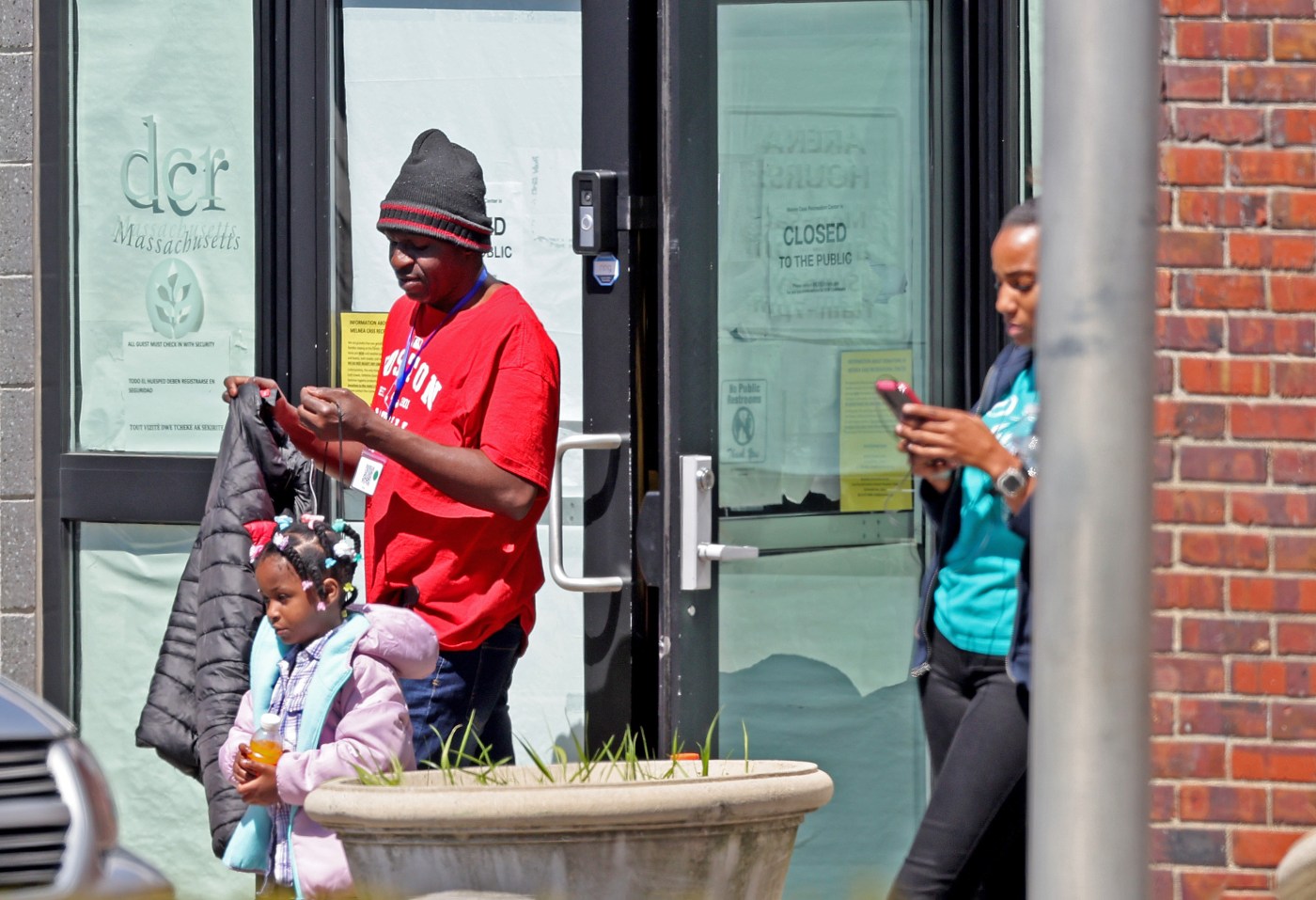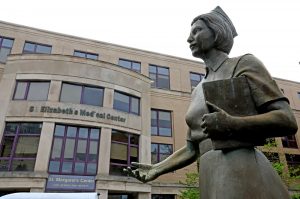
Maura Healey defends her administration’s migrant crisis response and spending
The governor is defending her administration’s response to an ongoing migrant crisis set to stretch into a second summer and after months of strain on the state’s shelter system.
Gov. Maura Healey thinks her administration has done what it must when it comes to the thousands of foreign nationals who have found their way to the Bay State and taken up residence in a state provided Emergency Assistance shelter.
Massachusetts law, Healey told WCVB, does not leave a governor much choice in the matter.
“We have a law that requires us to house people,” she said.
Besides which, the former attorney general said, the filled-to-bursting state of the shelter system isn’t exactly a problem the commonwealth brought upon itself.
“This is a federal problem. Remember, the number of immigrants we’re seeing — in Massachusetts and other states — over the border is the result of federal inaction. There was a bipartisan deal on the table weeks ago. Republicans in Congress killed it after Donald Trump said no deal on immigration,” she said.
The state’s shelter system has been full since last November, filling to capacity not long after the governor warned of the impending crisis and declared a state of emergency existed in the Bay State as a consequence of so many new arrivals.
The cost of housing sheltered families approaches $1 billion a year. With no agreement in Congress, the tab has fallen entirely on the state to close.
However, for every dollar spent to house a migrant mother, Healey stressed, another is spent to put a roof over the head of a Massachusetts family with children.
“Half of the families in shelter right now that we’re paying for…are Massachusetts families. Folks who have lived here for a long time; born here, grown up here. Half of the shelter housing is for those families” she said.
The governor’s administration has “managed” the migrant influx, she said, with a cap on the number of families the state will pay to house and a push to get families in shelter into permanent housing and working.
“We’ve already processed and got nearly 4,000 work authorizations for those immigrants,” she said. “That’s good, because we need to fill these jobs.”
According to information provided by the Executive Office of Housing and Livable Communities, there were 7,490 families housed in state provided shelter as of Friday.


